The Best Microsoft Build Announcements for 2024
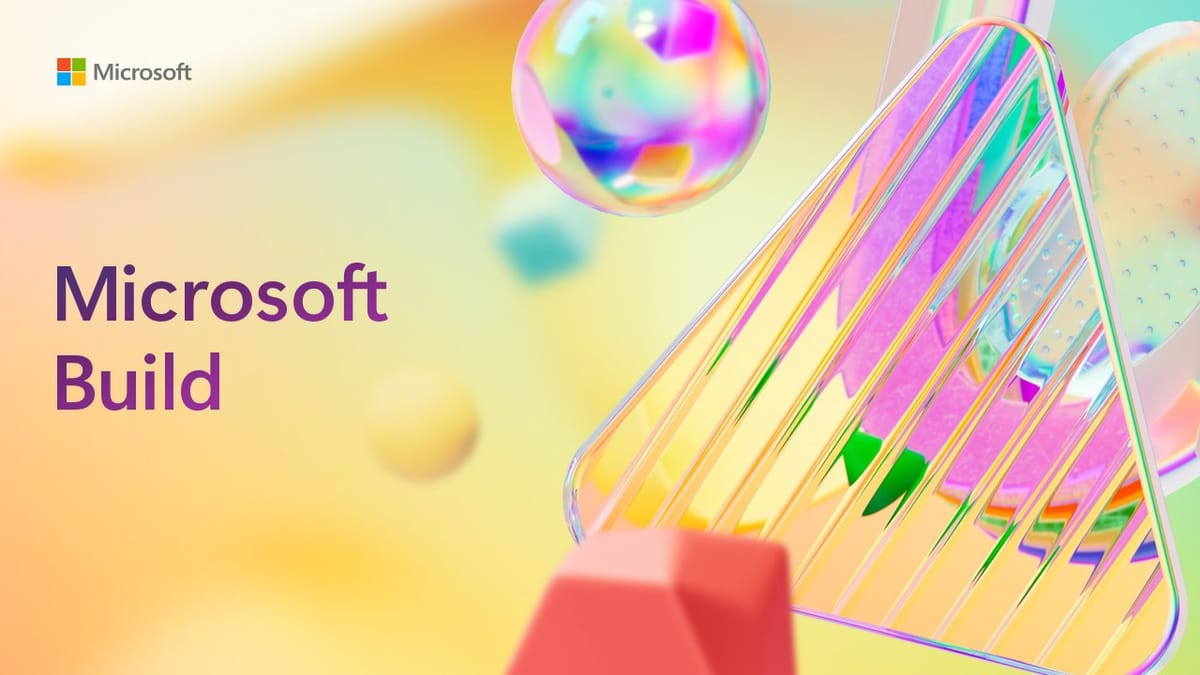
If 2023's Microsoft Build was about laying the foundation for the company's AI plans, the announcements this year demonstrate a new platform for developers that can to a clear direction and a maturity based on learning what does and doesn't work with large language model technology.
It'd be easy to cover everything announced at Build last week, but that's what the Book of News is for. Instead, I'm going to challenge myself to stick to three announcements per category, focusing on biggest and most important.
We've got so much ground to cover, so let's get into it!
Azure AI Services
Here are a few highlights of the many AI-related announcements from last week.
Azure AI Studio is Generally Available
Azure AI Studio provides a complete developer experience for building, evaluating, and deploying AI models. It offers a fully managed AI platform that lets you customize apps using the latest models from Azure OpenAI Service and other popular models.
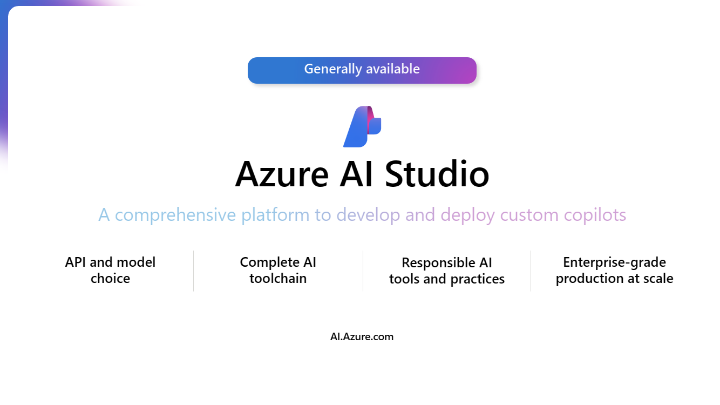
Azure AI Studio helps you:
- Discover, benchmark, and deploy the model(s) of your choice
- Share AI resources across teams and projects
- Experiment using built-in playground sandboxes
- Fine-tune models with specific data
- Orchestrate agent-based AI systems
- Trace and debug prompts and requests
- Evaluate the accuracy, quality, and safety of generated outputs
Develop and deploy generative AI apps responsibly with Azure AI Studio
Updates to Azure OpenAI Service, including GPT-4o
Microsoft announced several new and improved parts to Azure OpenAI Service at Build:
- GPT-4o: OpenAI's new flagship model is generally available in Azure and integrates text, vision and soon, audio capabilities.
- Fine-tuning for GPT-4: Now in public preview, fine-tuning for GPT-4 is available for organizations to customize with their own training data.
- Updates to Azure OpenAI Service Assistants: New features are available to help create advanced copilots and virtual assistants that can handle complex tasks and take action on their own.
- Multimodal capabilities with GPT-4 Turbo: Process both text and image inputs to generate text outputs.
- Azure AI On Your Own Data integrated with Retrieval-Augmented Generation: Create personalized copilots tailored to your data, speed task completion, and help with decision making by using RAG to securely access your existing data sources.
- Messaging Insights for WhatsApp with Azure Communication Services: Extract insights from WhatsApp messages using language detection, translation, sentiment analysis, key phrase extraction, and intent recognition.
- Phi-3 Open Models: A new family of small language models created by Microsoft that are affordable and work well in compute-constrained environments (including laptops).
Azure OpenAI Service Announces Multimodal Innovations at Microsoft Build 2024
New Capabilities in Azure AI Speech
A new service in Azure AI Studio, Speech Analytics will process and analyze audio data to generate call summaries, get customer sentiment and key topics, or capture custom insights.
The new in-preview Fast Transcription API can transcribe audio to text up to 40x faster than real-time, producing a transcript of a 10-minute audio file in as little as 15 seconds with high accuracy. This helps in scenarios like interviews and call centers where immediate transcription is important.
A preview of the Video Translation service was also announced, allowing developers to localize video content in multiple languages
Multi-lingual Speech Translation: Enhancements in Azure AI Speech include multiple language detection and automatic language detection for captioning use-cases.
The personal voice feature in Azure AI Speech is now generally available and allows users to create an AI voice with just a short speech sample.
Announcing new multi-modal capabilities with Azure AI Speech
Other Azure AI Announcements
- Azure Patterns and Practices for Private Chatbots
- Updates to Azure AI Search
- Phi-3-vision multimodal Model in Preview
- New Azure AI Content Safety Capabilities
Related Build Sessions
- Take an Azure OpenAI chat application from PoC to enterprise-ready
- Revamping the Document Automation Workflow with Generative AI
- Multimodel, Multimodal, and Multiagent innovation with Azure AI
- RAG at scale: production-ready GenAI apps with Azure AI Search
- Azure AI Studio - Creating and scaling your custom copilots
- Build sophisticated custom copilots with Azure OpenAI Assistants
- Give your GenAI apps a multilingual voice with Azure AI Speech
Developer Tools and DevOps
.NET Aspire is Generally Available
.NET Aspire is a new opinioned development stack that streamlines the creation of cloud-native .NET applications by providing pre-built components and standardized configurations.
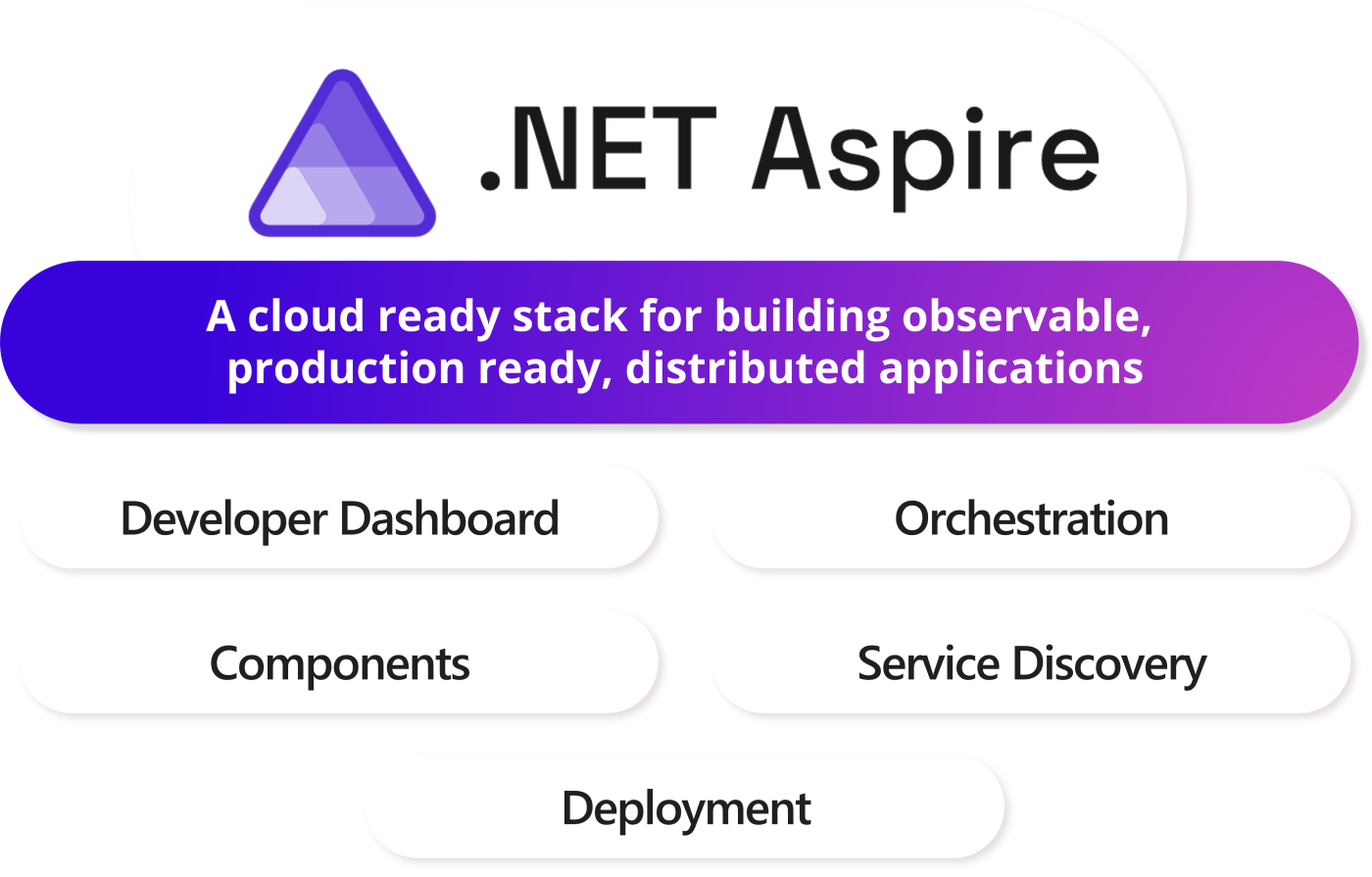
.NET Aspire:
- Simplifies development of distributed applications: .NET Aspire provides tools to manage these distributed parts and make sure they communicate effectively.
- Provides pre-built components for common cloud services: .NET Aspire includes pre-built components that connect your application to these services easily.
- Standardizes configurations: .NET Aspire uses standard patterns so you don't have to write a lot of repetitive code to setup connections and configurations.
- Improves observability: .NET Aspire helps you easily monitor how your application is running and identify any problems by including OpenTelemetry for health checks and telemetry collection.
Azure Kubernetes Service (AKS) Automatic
I'm not going to lie — I'm really excited about this one. Kubernetes is great, and solves a lot of problems, but it's hard. AKS Automatic gives you the full power and flexibility of the Kubernetes API in a more opinionated mode of operation that is based on these three key concepts:
- Production-Ready by Default: AKS Automatic uses best practices and proven templates to provide a solution that is production-ready right out of the box.
- Integrated Best Practices and Safeguards: AKS Automatic ensures that your cluster and applications adhere to the highest standards of security and reliability and builds on the many best practices that Microsoft has already been encouraging people to do with Kubernetes, including integrations with Azure Policy, Azure Monitor, and Azure Key Vault for complete governance and visibility.
- Code to Kubernetes in Minutes: AKS Automatic integrates with Automated Deployments that simplify the process of going from code to Kubernetes with CI/CD pipelines that are automatically generated for you.
AKS at Build: Enhancing security, reliability, and ease of use for developers and platform teams
GitHub Copilot Extensions
GitHub Copilot Extensions extend the power of GitHub Copilot Chat to the tools and solutions your team is already using to build and manage software and are supported on GitHub.com, Visual Studio, and Visual Studio Code.
The first batch of extensions are available from DataStax, Docker, LambdaTest, LaunchDarkly, McKinsey & Company, Microsoft Azure and Teams, MongoDB, Octopus Deploy, Pangea, Pinecone, Product Science, ReadMe, Sentry, and Stripe.
It's also possible to build private extensions specific to your organization, referencing your own tools and data to help meet your specific requirements.
Other Developer Tools and DevOps Announcements
- Announcing the AI Toolkit for Visual Studio Code
- Azure API Center: Your Comprehensive API Inventory and Governance Solution
- Introducing GenAI Gateway Capabilities in Azure API Management
- Discover How App Modernization on Azure Enables Intelligent App Innovation
- What’s new in Azure Container Apps at Build 2024
- Azure Functions - Microsoft build 2024 update
- Azure Messaging and Streaming update - May 2024
- Boost dev team agility with customized, project-specific templates in Azure Deployment Environments
- Microsoft Dev Box is leveling up to support your development needs
Related Build Sessions
- Demystify cloud-native development with .NET Aspire
- Infusing your .NET Apps with AI: Practical Tools and Techniques
- What’s new in C# 13
- Maximize joy, minimize toil with great developer experiences
- Scott and Mark learn AI
- Create Generative AI experiences using Phi
- Unleash the Potential of APIs with Azure API Management
- Using AI with App Service to deploy differentiated web apps and APIs
- App innovation in the AI era: cost, benefits, and challenges
- Serverless architectures: Effortless Intelligent Apps at extreme scale
- Introducing AKS Automatic: The easiest managed Kubernetes experience
- Extending GitHub Copilot
- Platform Engineering: Creating Scalable and Resilient Systems
Azure Data
Real-Time Intelligence in Microsoft Fabric
Real-Time Intelligence in Microsoft Fabric helps organizations make better decisions with up-to-the-minute insights by providing an end-to-end solution for ingestion, processing, analyzing, visualizing, monitoring, alerting, and taking action on events.
Real-Time Intelligence introduces the concept of the Real-Time hub where users can discover, manage, and connect to their streaming data sources through built-in connectors, regardless of location. The hub also lets you stream data into OneLake for further analysis with the rest of your data estate.
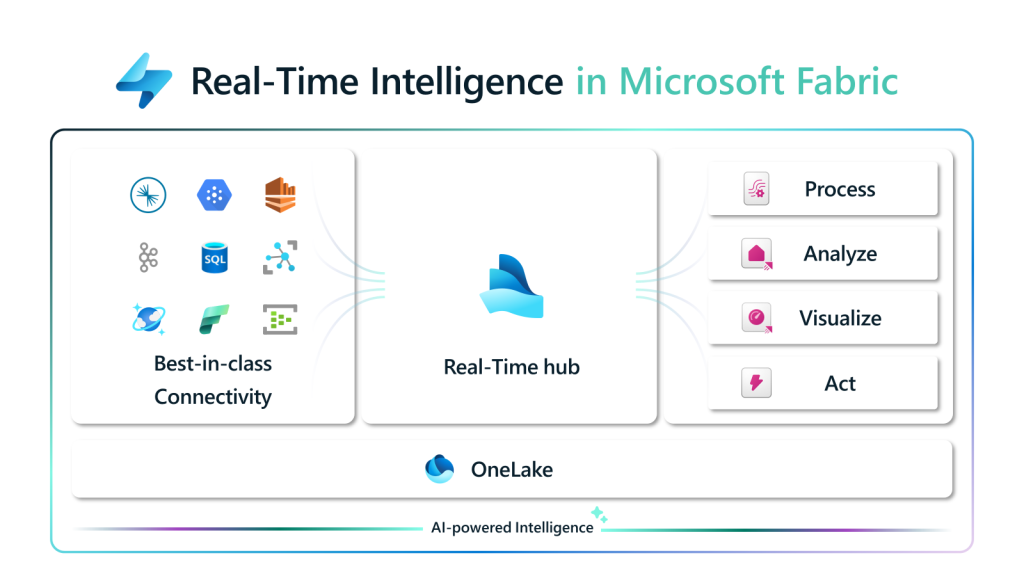
Introducing Real-Time Intelligence in Microsoft Fabric
New AI Capabilities in Azure Database for PostgreSQL
The new azure_local_ai extension for Azure Database for PostgreSQL allows you to create text embeddings from a model running alongside your PostgreSQL database for low latency, predictable costs, and data security.
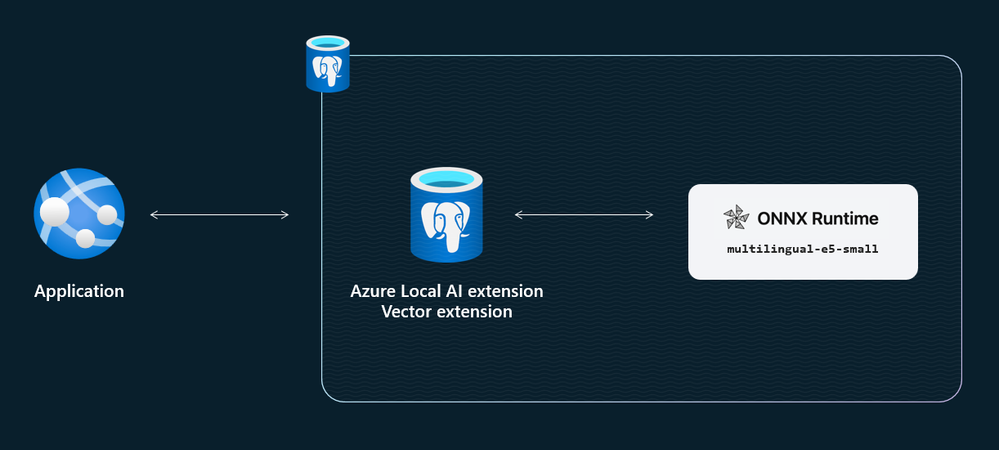
Introducing in-database embedding generation for Azure Database for PostgreSQL
New Capabilities in Azure Cosmos DB
There were a bunch of feature announcements for Azure Cosmos DB, including:
- Built-in vector database capabilities
- Serverless to provisioned account migration
- Cross-region disaster recovery in Azure Cosmos DB for MongoDB
- Azure Cosmos DB integration with Vercel
- Go SDK for Azure Cosmos DB
The new vector index options in Azure Cosmos DB are especially interesting since they can use a new suite of scalable search algorithms developed by Microsoft to quickly handle large volumes of data.
Other Azure Data Announcements
Related Build Sessions
- Reimagine Real-Time Intelligence with Microsoft Fabric
- Microsoft Fabric: What's new and what's next
- Transform applications with AI and Azure Database for PostgreSQL
- Integrating Azure AI and Microsoft Fabric for Next-Gen AI Solutions
- Design and build multi-tenant SaaS apps at scale with Azure Cosmos DB
Azure Infrastructure
Announcing the Public Preview of Azure Compute Fleet
Azure Compute Fleet is a new service used to automate the large-scale deployment, management, and monitoring of virtual machines across size families. It also lets you mix standard and spot VM types and use Reserved Instances and Savings Plans to optimize costs for your workloads.
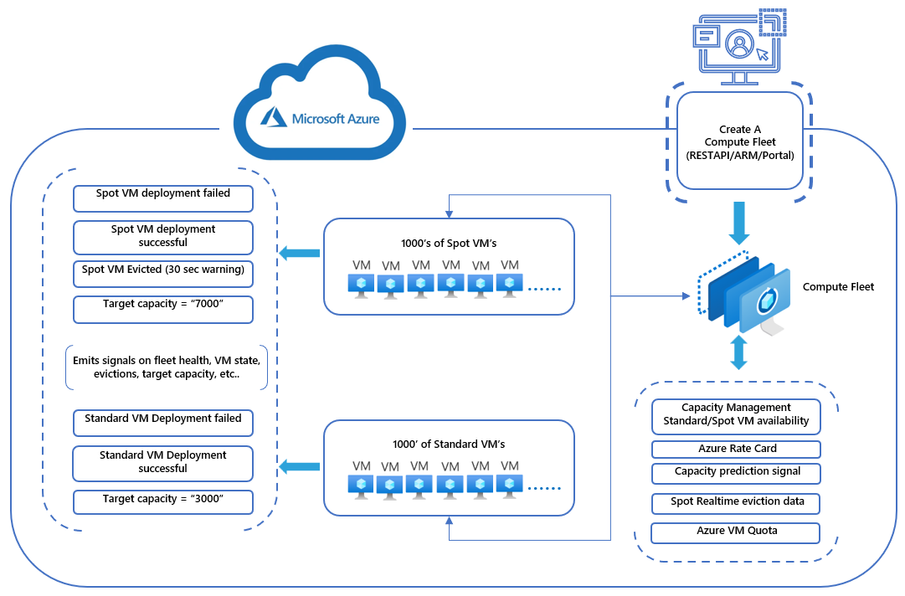
Announcing the Public Preview of Azure Compute Fleet
Cobalt 100 Arm-based VMs for AI Workloads
Virtual machines featuring the new Microsoft-designed Azure Cobalt 100 Arm processors are now available in limited public preview. Performance looks promising:
The Azure Cobalt 100 VMs can deliver up to 1.4x CPU performance, up to 1.5x performance on Java-based workloads and up to 2x performance on web servers, .NET applications and in-memory cache applications compared to previous generation Azure Arm-based VMs. These VMs support 4x local storage IOPS (with NVMe direct) and up to 1.5x network bandwidth compared to the previous generation Azure Arm-based VMs.
Announcing the preview of new Azure VMs based on the Azure Cobalt 100 processor
Azure Container Storage General Availability
Generally available soon, Azure Container Storage simplifies storage management for containerized applications running on Azure Kubernetes Service:
- Provides a consistent experience for managing different storage types, reducing complexity
- Enables rapid scaling of persistent volumes for stateful applications
- Optimizes storage use by letting you choose the most suitable storage option based on your workload's needs
- Automates persistent volume creation, saving time and resources
Related Build Sessions
Windows
I haven't been this excited about Windows PCs in…a long time. The headline feature is Windows Copilot Runtime, which abstracts away individual large and small language models and gives developers stable APIs they can work with.
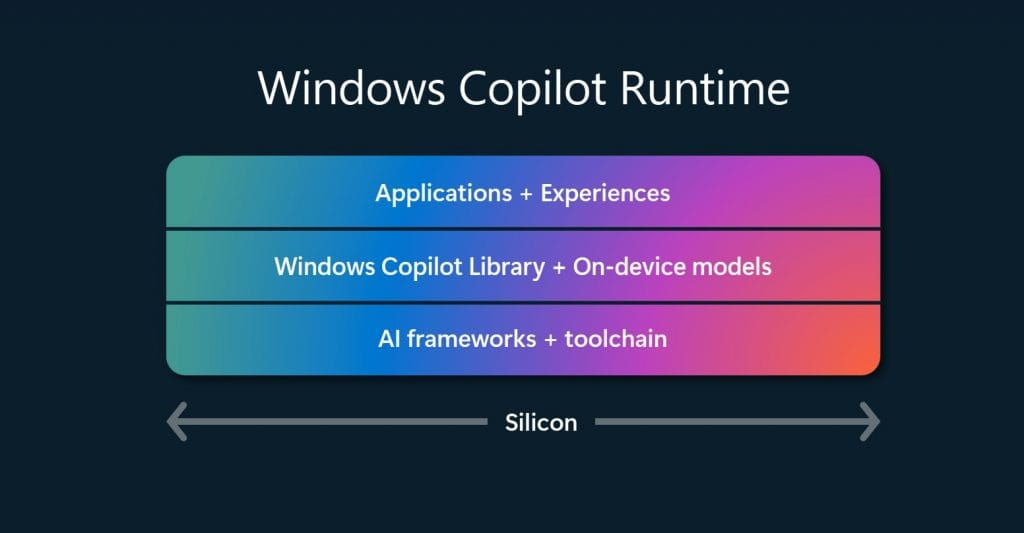
And it looks like Arm-based PCs are finally going to happen. It looks like they bring a legitimate leap in performance — just look at these benchmarks:
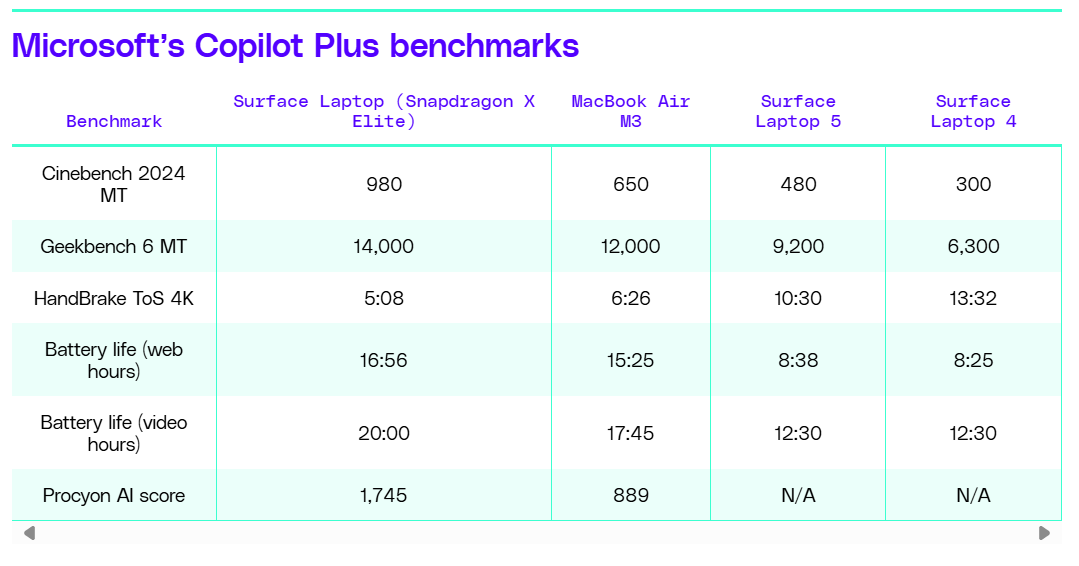
I'm looking forward to getting my hands on one so I can try out the new Recall feature announced for Copilot+ PCs.
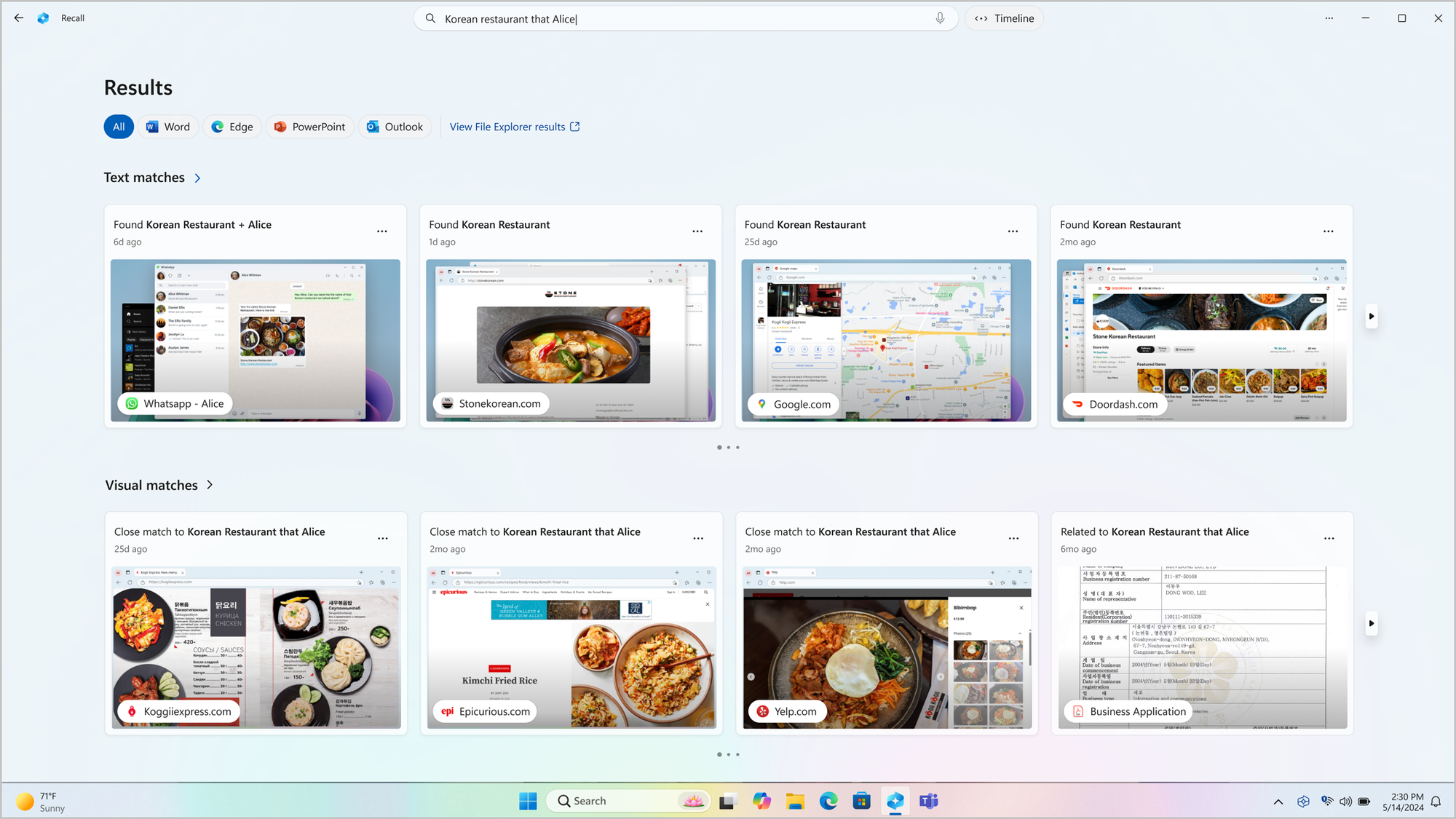
There were also a number of announcements for developers working in Windows:
- Environments in Dev Home will let developers create, manage, and launch all of their remote development environments from the Dev Home user interface.
- Windows Customization in Dev Home gives developers easy access to Windows settings right from Dev Home.
- Windows Subsystem for Linux (WSL) will be available in Dev Home and introduces enterprise management features to allow organizations to ensure WSL environments are secure and up to date.
- Advanced Paste in PowerToys uses local AI models to transform clipboard contents into JSON, markdown, and other formats.
- Sudo for Windows brings the sudo command from Linux to the Windows CLI.
- Block Cloning in Dev Drive to instantly perform large file copies
- Git integration in Windows Explorer
Unlock a new era of innovation with Windows Copilot Runtime and Copilot+ PCs
Related Build Sessions
- Introducing the Next Generation of Windows on Arm
- Windows Subsystem for Linux, Your enterprise ready multitool
- Developer experience improvements in Windows
- Level up your dev box, how devs at Microsoft are productive on Windows with Scott Hanselman
Power Platform
New Developer Features in Power Apps
Makers will now be able to collaborate more easily with developers thanks to several new features and improvements:
- Native Git integration to see and track changes and integrate Power Apps into existing development processes.
- Live coauthoring in Canvas apps to let multiple makers work together in the same app.
- Code in Power Apps Studio allows developers to view and work with YAML to create templates and have better reuse of code.
Power Apps is making it easier for developers to build with Microsoft Copilot and each other
Agent Capabilities in Microsoft Copilot Studio
Copilots created in Copilot Studio can now act as independent agents to automate complex and long-running business processes with less human intervention.
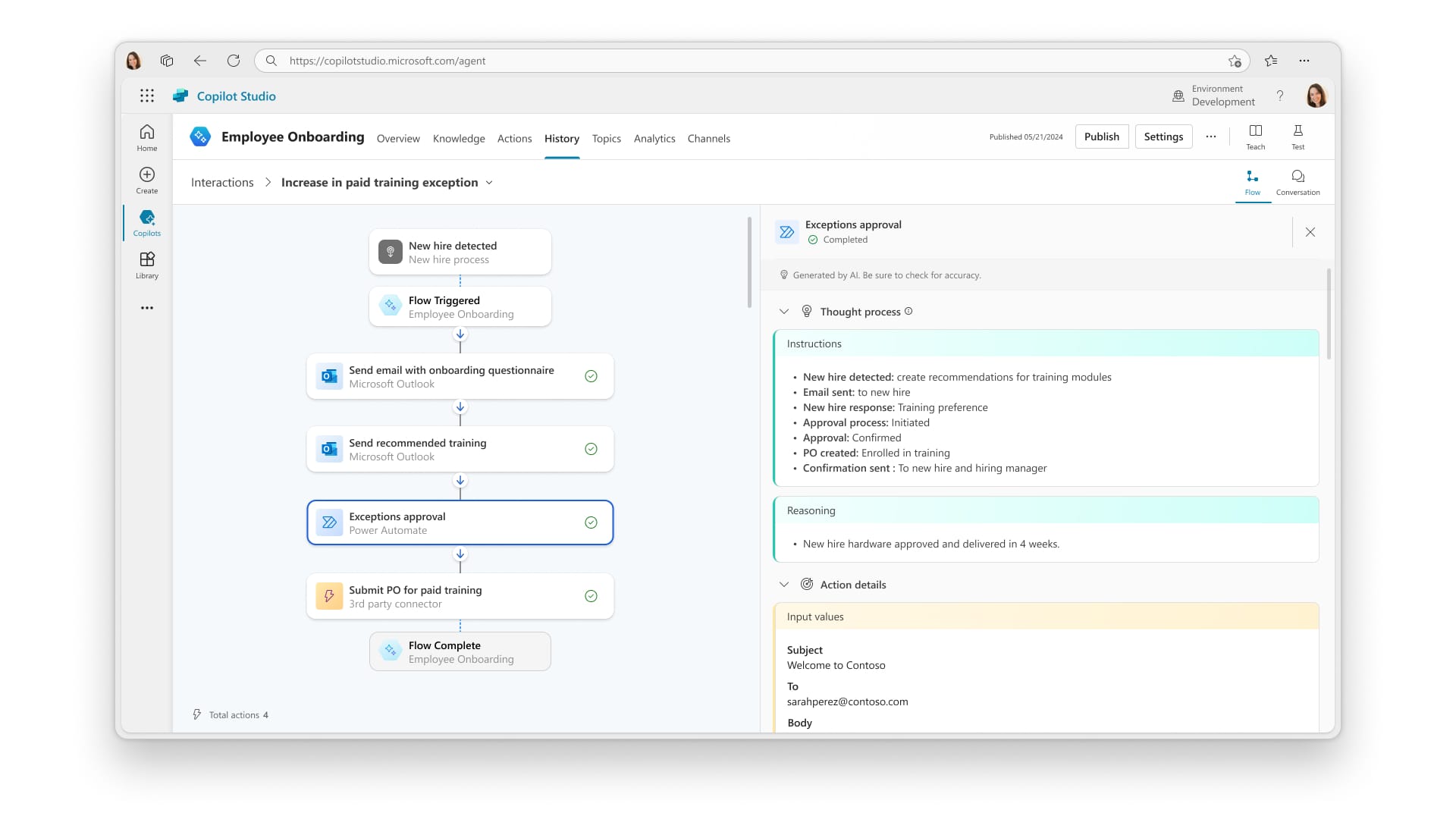
Microsoft Copilot Studio: Building copilots with agent capabilities
AI Flows in Power Automate
AI flows let you use natural language and generative AI to create an automation plan that lets the large language model select the best actions to take instead of you needed to build out a sequence of triggers, actions, and conditions.
Revolutionize the way you work with automation and AI
Other Power Platform Announcements
- Unlock new levels of productivity with Microsoft Dataverse and Microsoft Copilot Studio
- Microsoft Power Pages is bringing the new standard in secure, AI-powered capabilities
Related Build Sessions
- Secure and govern Copilot within enterprise-grade low code solutions
- Reimagine Enterprise Website building with Low Code using Power Pages
- Enable every developer to collaborate with low code + pro code
- Using Power Platform to accelerate full-stack software development
Microsoft 365
SharePoint Embedded is Now Generally Available
SharePoint Embedded is a headless, API only version of SharePoint, specifically built for apps. This extends Microsoft 365 features to custom file and document centric applications while ensuring security and compliance.
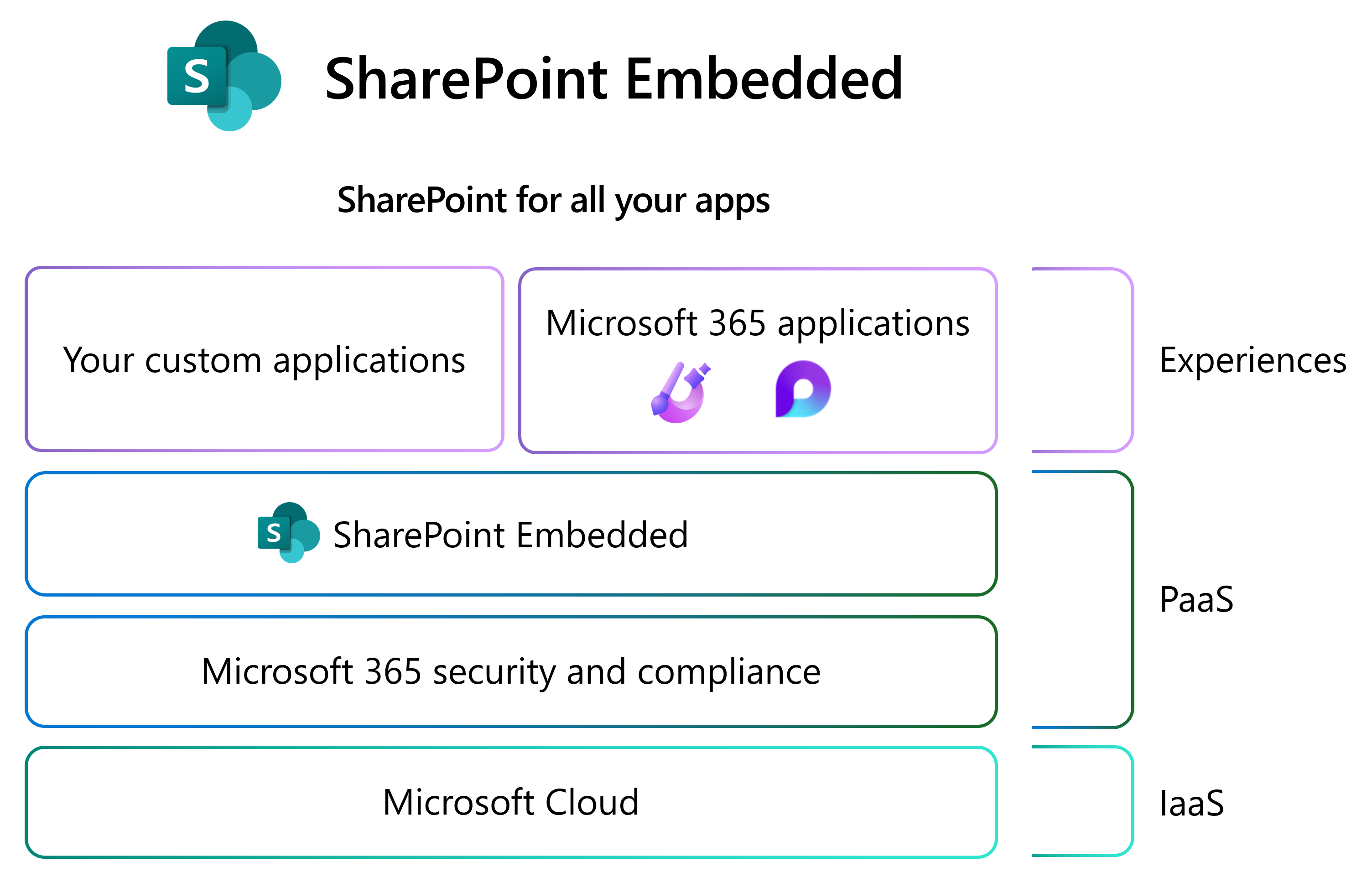
Announcing SharePoint Embedded General Availability
Fluid Framework 2.0 is Now in Beta
The Fluid Framework lets developers easily add collaboration features to applications by doing the hard work of syncing and merging changes from multiple clients and users.
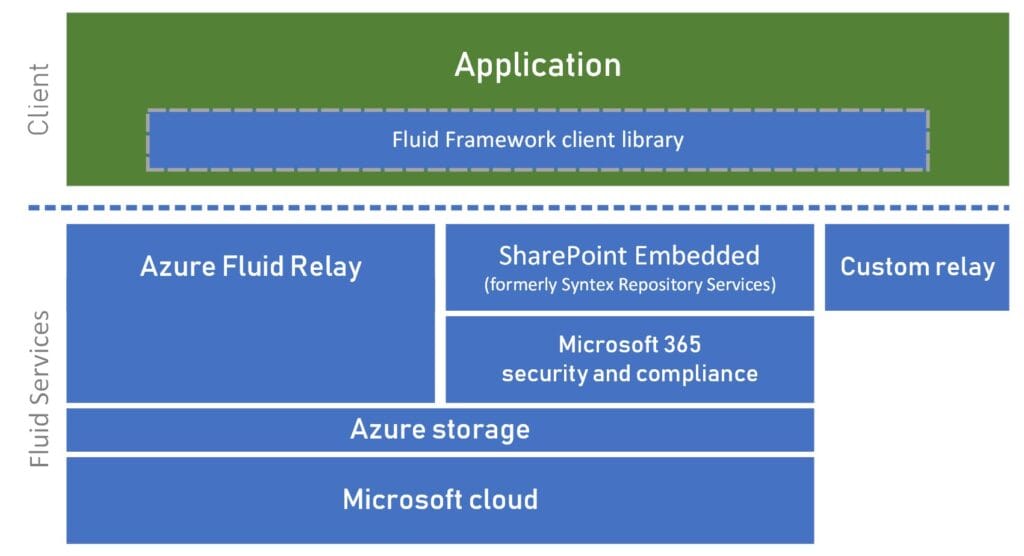
Announcing Fluid Framework 2.0 Beta
Microsoft Loop is Generally Available in Microsoft 365
Microsoft Loop makes collaboration easier than ever. It includes a number of Loop components you can insert and share across Teams, Outlook, Word, and OneNote.
Microsoft Loop: built for the new way of work, generally available to Microsoft 365 work accounts